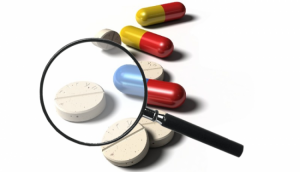 The Brazilian pharmaceutical industry is preparing to implement one of the largest drug traceability programs in the world, created in 2005 with the help of ETCO. With a final implementation deadline defined by the National Health Surveillance Agency (Anvisa) for 2016, this program should track 5 billion boxes of medicines across the country, according to Sindusfarma, the union that represents the sector.
The Brazilian pharmaceutical industry is preparing to implement one of the largest drug traceability programs in the world, created in 2005 with the help of ETCO. With a final implementation deadline defined by the National Health Surveillance Agency (Anvisa) for 2016, this program should track 5 billion boxes of medicines across the country, according to Sindusfarma, the union that represents the sector.
Established by Law 11.903 / 09, the program determines that each package of medicine receives the printing of a two-dimensional (2D) code, whose technology has already been chosen by the agency (GS1 Data Matrix). This seal, known as the Unique Medicines Identifier (IUM), will store data on the route of each bottle, from the factory to pharmacies (estimated between 60 and 90 in Brazil), in addition to hospitals. The IUM will also store lot numbers, series and expiration date.
For the consumer, the greatest benefit of the new system is the security it adds to medicines. “The industry will be able to know exactly where its product is and act more quickly and in advance in case of problems”, explains the executive president of Sindusfarma, Nelson Mussolini. He adds that traceability can also further reduce drug theft, which has already been greatly minimized by the Electronic Invoice and Tax Substitution, which practically extinguished the figure of the recipient.
Currently, drug logistics information is fragmented across the various agents in the pharmaceutical chain. The industry controls the process from the factory to the distributor. Thereafter, batches of different groups of drugs are fractioned and grouped into smaller shipments, which make up five or six logistical steps to the final destination.
With the new system, the data will be centralized in a database whose administration is the responsibility of the drug registration holder. Anvisa determined that each link in the chain feeds this bank with the information it knows. The bank may be freely consulted by the agency for monitoring and inspection purposes.
Anvisa also defined that by December 2015 all laboratories have at least three lines incorporated into the system. Pharmaceutical Libbs announced in September that it had adapted to that determination. "It is a system that brings benefits to the consumer, from the point of view of security, and for the sector, helping to combat fraud, smuggling and counterfeiting," said the Minister of Health, Arthur Chioro.
Until December 2016, each bottle of medicine that leaves the factories must be traceable. But there are still issues to resolve regarding the confidentiality of the information.
Since the regulation states that data must be provided to the industry, which is also responsible for the costs of the system, it is likely that retail and wholesale will question this requirement, arguing that it violates competition laws. The industry, on the other hand, claims that full access could anticipate and minimize problems. “If the system tells us that there are complaints about drugs that have no effect, for example, I will go there and investigate. Until we are notified to make a recall, the problem may become bigger ”, says Mussolini.
The executive president of Sindusfarma says that the issue of confidentiality can effectively delay the implementation of the system and is working with entities involved to find a solution. “There is probably a technological path that resolves, instituting access controls in the system. But if that is the solution, we will have to adjust the current regulations. ”
(With advice from Libbs Farmacêutica and the Brazilian Automation Association)



